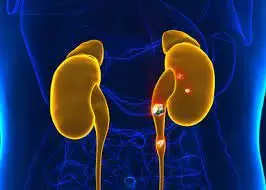- Home
- Medical news & Guidelines
- Anesthesiology
- Cardiology and CTVS
- Critical Care
- Dentistry
- Dermatology
- Diabetes and Endocrinology
- ENT
- Gastroenterology
- Medicine
- Nephrology
- Neurology
- Obstretics-Gynaecology
- Oncology
- Ophthalmology
- Orthopaedics
- Pediatrics-Neonatology
- Psychiatry
- Pulmonology
- Radiology
- Surgery
- Urology
- Laboratory Medicine
- Diet
- Nursing
- Paramedical
- Physiotherapy
- Health news
- Fact Check
- Bone Health Fact Check
- Brain Health Fact Check
- Cancer Related Fact Check
- Child Care Fact Check
- Dental and oral health fact check
- Diabetes and metabolic health fact check
- Diet and Nutrition Fact Check
- Eye and ENT Care Fact Check
- Fitness fact check
- Gut health fact check
- Heart health fact check
- Kidney health fact check
- Medical education fact check
- Men's health fact check
- Respiratory fact check
- Skin and hair care fact check
- Vaccine and Immunization fact check
- Women's health fact check
- AYUSH
- State News
- Andaman and Nicobar Islands
- Andhra Pradesh
- Arunachal Pradesh
- Assam
- Bihar
- Chandigarh
- Chattisgarh
- Dadra and Nagar Haveli
- Daman and Diu
- Delhi
- Goa
- Gujarat
- Haryana
- Himachal Pradesh
- Jammu & Kashmir
- Jharkhand
- Karnataka
- Kerala
- Ladakh
- Lakshadweep
- Madhya Pradesh
- Maharashtra
- Manipur
- Meghalaya
- Mizoram
- Nagaland
- Odisha
- Puducherry
- Punjab
- Rajasthan
- Sikkim
- Tamil Nadu
- Telangana
- Tripura
- Uttar Pradesh
- Uttrakhand
- West Bengal
- Medical Education
- Industry
Gene polymorphisms linked to development of recurrent urolithiasis

Researchers have found in a new study that Gene polymorphisms is linked to development of recurrent urolithiasis.
The findings of the study have been published in the Journal BMC Nephrology.
Urolithiasis is one of the most prevalent diseases worldwide. Its prevalence is rising, both in developing and developed countries. Currently, the incidence and prevalence of urolithiasis is on the rise worldwide. Approximately 12% population of the world was affected by urolithiasis regardless of age, race, or sex.
It is known that genetic factors play big roles in the development of urolithiasis. One of the suspected factors is gene polymorphism. This study aims to find an accurate estimate of the association between genetic polymorphism and the risk of recurrent urolithiasis.
A systematic review and meta-analysis were performed on 12 studies from 3 databases that investigated gene polymorphism as an risk factor of urolithiasis. The review was done using Review Manager® version 5.3.The study was conducted through a comprehensive search from Medline/PubMed, Scopus, and Cochrane electronic databases for studies published between January 2000 and June 2023.
Results
Insignificant heterogenicity was found in this study. Populations from Asia and the Middle East are more likely to experience recurrent urolithiasis. Additionally, variation in the VDR and urokinase genes, particularly in the Asian population, increases the risk of developing recurrent urolithiasis.
The researchers found that Gene polymorphisms have significant roles in the development of urolithiasis, especially in the Middle Eastern region.Additionally, both VDR and urokinase gene polymorphism contributes to the susceptibility of recurrent urolithiasis particularly for the Asian population in the latter. Studies with a variety of population characteristics are recommended to be performed to further support our results.
Reference:
Rasyid, N., Soedarman, S. Genes polymorphism as risk factor of recurrent urolithiasis: a systematic review and meta-analysis. BMC Nephrol 24, 363 (2023). https://doi.org/10.1186/s12882-023-03368-y
Keywords:
Gene, polymorphisms, linked, development, urolithiasis, BMC Nephrology, Rasyid, N., Soedarman, S
Dr. Shravani Dali has completed her BDS from Pravara institute of medical sciences, loni. Following which she extensively worked in the healthcare sector for 2+ years. She has been actively involved in writing blogs in field of health and wellness. Currently she is pursuing her Masters of public health-health administration from Tata institute of social sciences. She can be contacted at editorial@medicaldialogues.in.
Dr Kamal Kant Kohli-MBBS, DTCD- a chest specialist with more than 30 years of practice and a flair for writing clinical articles, Dr Kamal Kant Kohli joined Medical Dialogues as a Chief Editor of Medical News. Besides writing articles, as an editor, he proofreads and verifies all the medical content published on Medical Dialogues including those coming from journals, studies,medical conferences,guidelines etc. Email: drkohli@medicaldialogues.in. Contact no. 011-43720751


